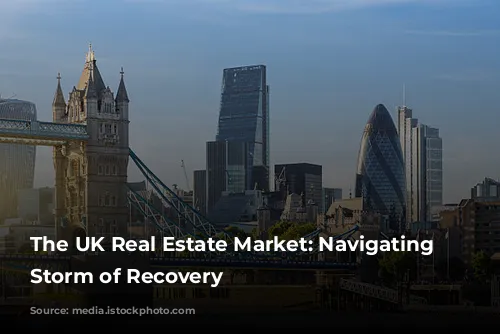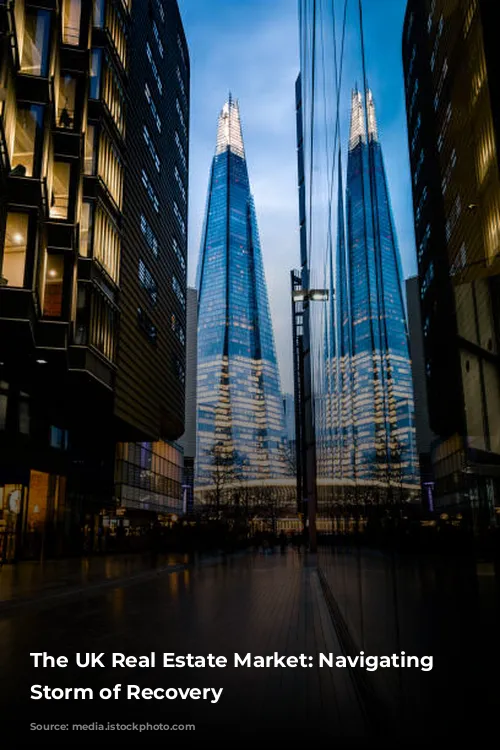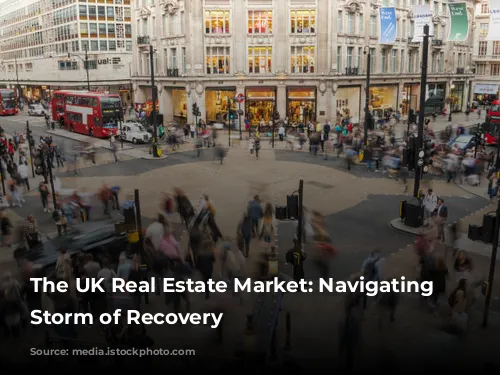It’s exciting to see the UK economy emerge from the pandemic, but it’s not all smooth sailing. The commercial real estate market has taken a hit, and we’re here to break down the key themes and opportunities that are shaping its recovery.
This article delves into the first theme, Recovery, focusing on how the UK property market is weathering the storm and bouncing back.

Unprecedented Times, Unprecedented Shifts
We’re all familiar with the unprecedented challenges the world has faced. These challenges have pushed existing trends into overdrive and paved the way for entirely new developments. Real estate, being the backbone of any economy, isn’t immune to these changes. Buildings that have stood for generations are being reimagined, and new uses are emerging.
The COVID-19 pandemic, a global force majeure, has accelerated these shifts, creating short-term disruptions in some sectors. While these disruptions may cause temporary pain, they are also paving the way for new ideas and developments. The real estate landscape is constantly evolving, with some sectors experiencing a decline in values, others showing overreactions offering attractive investment opportunities, and a few select locations and sectors experiencing increased demand.

Retail and Hospitality: A Tale of Two Sectors
The lockdown in March 2020 forced a seismic shift in consumer behavior. Online shopping, particularly for groceries and food, surged, driving demand for distribution warehouses and last-mile delivery units. However, in-store retail, particularly in the fashion sector, faced significant challenges.
The pandemic’s impact on the tourism and hospitality industries was equally profound. Travel restrictions and quarantines caused a sharp decline in overseas visitors leading to job losses and reduced footfall. Consequently, many retailers are struggling to pay their rent due to reduced turnover.
Despite the current difficulties, we predict a strong rebound in international travel and tourism. Cities that have thrived on mass travel, from Limassol to London, will see visitor numbers gradually recover. While the tourism sector may face challenges in the coming months, we anticipate a robust recovery beginning in the third quarter of 2021. Historically, international tourism rebounded quickly after the global financial crisis and the 9/11 attacks, indicating a similar pattern could emerge following the pandemic.
The UK Economy: Resilient and Recovering
The UK economy experienced its worst quarterly contraction in GDP in the second quarter of 2020. This was expected, given the strict lockdown measures and social distancing guidelines that disrupted economic activity.
The good news is that economic activity showed significant improvement in the third and fourth quarters as businesses reopened, employees returned to offices, and travel restrictions eased. The UK is leading the vaccine race with approximately half of the population having received their first dose of the COVID-19 vaccine. This, coupled with the UK’s economic resilience, suggests a strong rebound once social distancing measures are fully lifted.

A Time for Opportunity: Investing in the UK’s Future
The commercial property market experienced a slowdown in investment and occupier activity in line with the decline in economic activity. Travel restrictions also limited cross-border investment, especially from Asian buyers. However, investor confidence is returning, as evidenced by the over £4.4 billion worth of capital transacted in September. This increase in transaction activity indicates a strong rebound in the market once lockdown measures are fully lifted.
The loss of custom during the pandemic has led to many operators struggling to meet their financial obligations, discouraging both individuals and investors from making large financial investments. This is contributing to falling demand and consequently, declining rental and capital values. However, history offers valuable insight. During the 2008 and 2009 global financial crisis, property prices rebounded and reached all-time highs.
This trend offers a golden opportunity for savvy investors to acquire properties in desirable locations at attractive prices. For example, central London’s retail, restaurant, and leisure sectors present a compelling case for investment. As the pandemic recedes, these areas are poised to experience a resurgence in demand, leading to a rise in property values.







